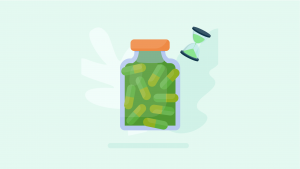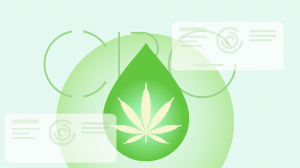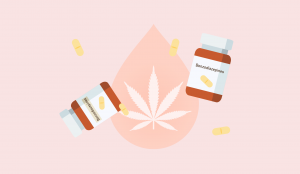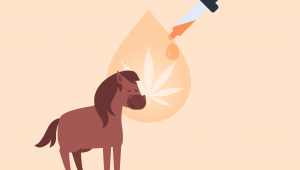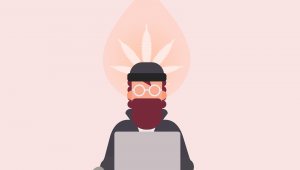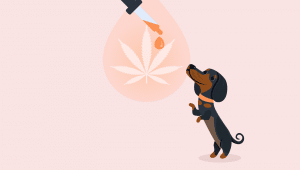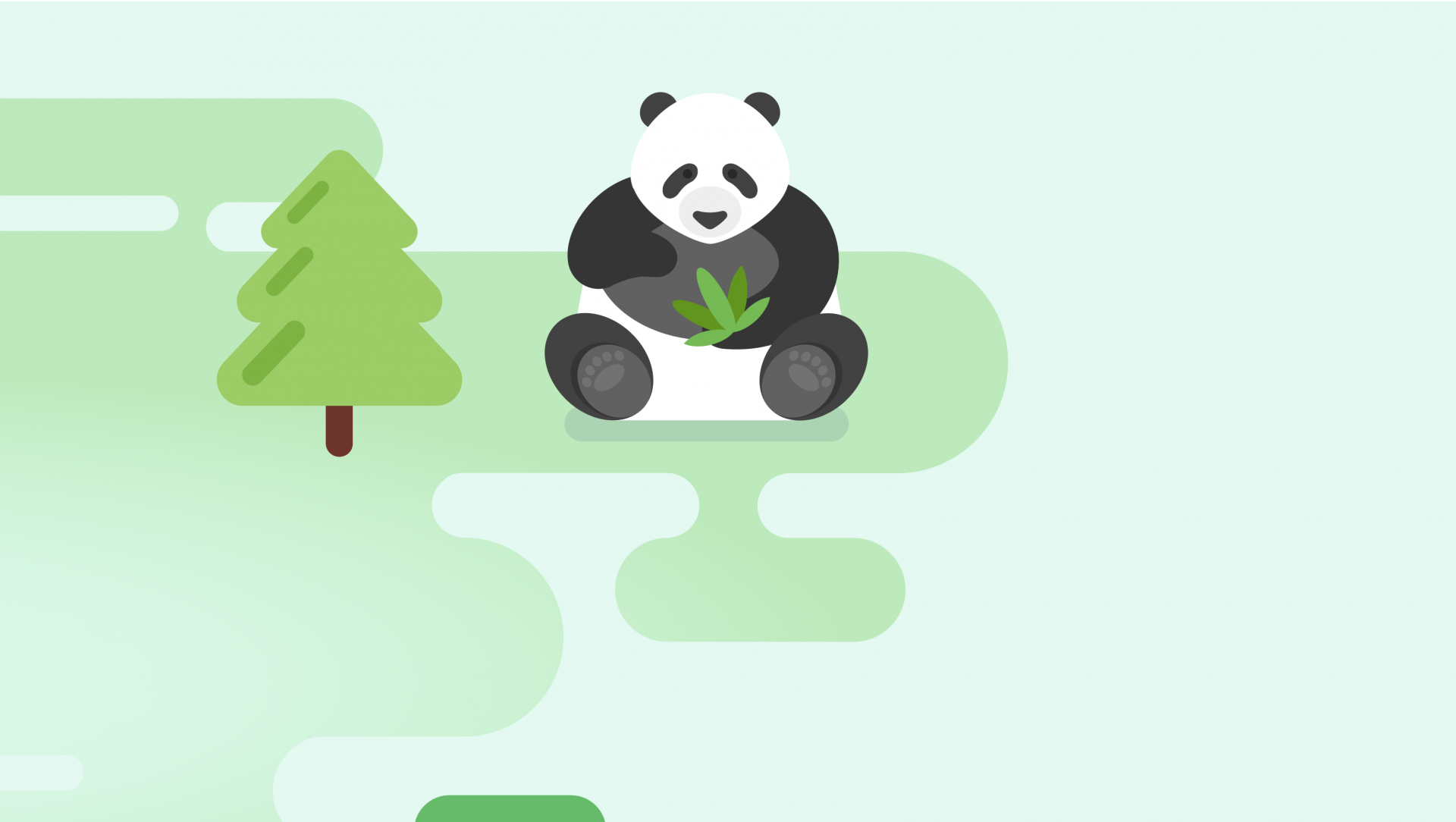
Guide to Buying CBD In Asia — Updated For 2021
CBD Laws By Country | Recommended Brands
CBD remains restricted throughout most of Asia, but the laws are changing. The demand for CBD products is high and the market is slowly beginning to change.
Cannabis originated from Asia and has been used as food, medicine, and textiles by various Asian cultures for centuries.
Today, cannabis acceptance in Asia is very different. Some countries outright ban the use of hemp or CBD, others embrace it.
For example, China has become a world-leading producer of hemp — aiming to supply the global CBD demand within the next 10 years.
In other regions, such as Singapore, all cannabis products are strictly prohibited and punished with harsh penalties.
To find out whether or not CBD is available in your country, check out the guide below. We’ll also provide sources to order CBD products if legal to do so in your country.
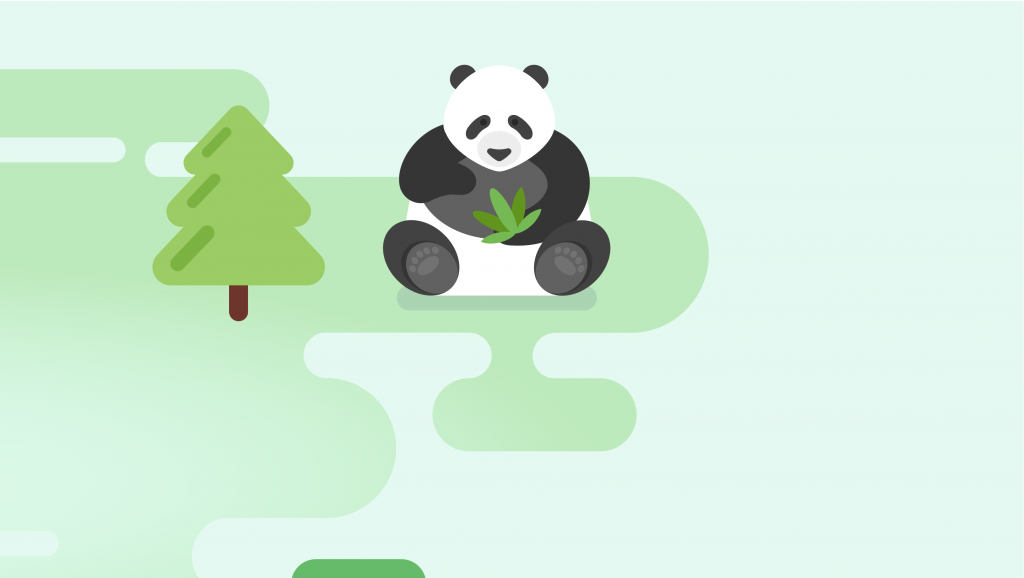
Highlights: Buying CBD in Asia
- Singapore penalizes use of cannabis products severely
- In Japan and Hong Kong, CBD products must not contain any traces of THC
- In South Korea, medicinal CBD is available under government control
- You can use a mail forwarding service like Skypax to buy CBD online if you live in a country where hemp is legal
Buying CBD in Asia

A Brief History of Cannabis Laws in Asia
The earliest hemp findings date back to the 5th millennium in China as fiber imprints on pottery. The Chinese used hemp for clothes, ropes, paper, food, and medicine.
In the Nei-Ching — the oldest known Chinese medical book — the author (supposedly the emperor Huang-Di) writes about the different uses for hemp:
- Hemp flowers were used for wound treatment
- The seeds and the hemp resin were used to stimulate the nervous system
- The seeds were used to calm skin inflammation and digestive problems
- The hemp oil was used as a hair tonic and to reduce symptoms of sulfur poisoning
- Hemp fiber was used for making ropes and textiles
Hemp was used throughout India, Iran, Iraq, Syria, Turkey, Japan, and other Asian countries. In India, the first printed book of prayers — Dharani — was made of hemp.
Hemp took a dark turn in the 20th century when hemp became associated with the psychoactive effects of marijuana. This lead to a period of global cannabis prohibition and many Asian countries followed the international law changes — the illegal trafficking of hashish (cannabis resin) throughout Asian territories heightened the disdain towards the plant, which was followed by even stricter penalties.
Things started changing when scientific research on cannabis and its therapeutic uses started to become recognized around the world. Within the last decade, Japan and China have started to follow cannabis trends to leverage economic opportunity.
These regulative changes are bringing a more positive attitude towards cannabis and CBD. Although still restrictive, the Asian region is expected to become one of the leaders in industrial hemp and hemp-derived CBD. Asia has the manufacturing and cannabis research capacities to respond to the increased demand for CBD both on a domestic and international level.
If they want to become leaders in the cannabis industry — old laws need to be updated.
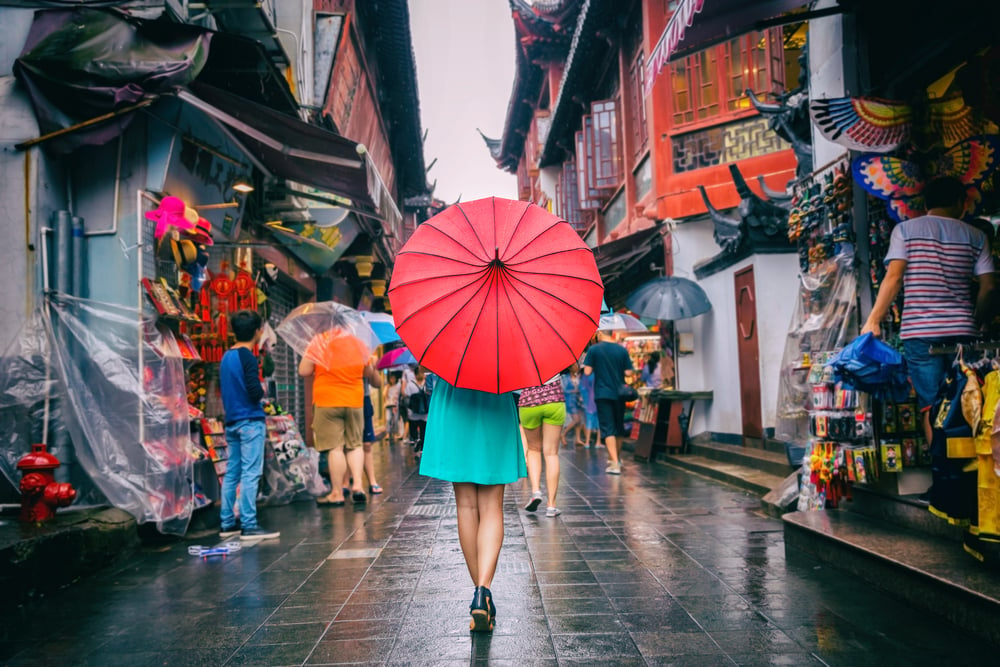
Is CBD Legal in Asia?
The rules on CBD vary significantly from one country to another — laws are heavily dependent on cultural, traditional, and religious differences.
CBD is becoming a trending cosmetic and beauty product in Asia. But it’s still restricted in many Asian countries. To understand why hemp has been banned throughout Asia, we need to understand how these countries view the plant.
For many years — and even still today — some Asian countries don’t differentiate between hemp and marijuana. This is problematic for those looking to use hemp for its health benefits, rather than for the psychoactive effects of marijuana.
What’s The Difference Between Hemp & Marijuana?
Both hemp and marijuana belong to the Cannabis sativa species, but they differ in appearance, composition, and use.
1. Marijuana
Marijuana is any cannabis plant that contains more than a set amount of THC by dried weight (0.3% in North America, and 0.2% in Europe).
THC is one of the 113 cannabinoids found in cannabis — known for inducing psychotropic effects and is directly responsible for the psychoactive effects of marijuana plants.
2. Hemp
Hemp is a term for cannabis plants that contain very small amounts of THC. Although the plant is technically capable of manufacturing THC, it’s genes dramatically limit how much is produced — focusing the effort on other cannabinoids instead like CBD.
Unlike marijuana, hemp doesn’t produce psychoactive effects and can’t be used to get the user high.
Hemp plants also have very high fiber content in the stalks of the plant, making them an excellent choice for cordage and fabrics.
Hemp is the main source for CBD products due to the distinction many regulators make between this plant and marijuana.
However, most Asian countries don’t make a distinction between the two plants (yet), and treat hemp and its derivatives as a drug the same way as marijuana.
Hemp Laws & Regulations By Country
1. Afghanistan
Verdict: Banned
Cannabis was freely grown in Afghanistan until 1973 when King Zahir Shah made the plant illegal and introduced severe punishment — including lengthy jail time and capital punishment.
Cannabis in Afghanistan has an important cultural role, and locals use it even today, especially in the form of hashish. However, its use and cultivation are outlawed.
CBD is not legal in Afghanistan, and any action related to it could lead to a severe penalty.
2. Bangladesh
Verdict: Banned
Cannabis in Bangladesh is entirely outlawed, and so are its derivatives. Penalties on cannabis possession and use are severe and include punishment with death.
3. Bhutan
Verdict: Banned
CBD is not differentiated from cannabis in Bangladesh, and is illegal for possession, sale, and use.
4. Cambodia
Verdict: Banned
Cannabis is widely available in Cambodia, but it’s prohibited by law. Refrain from buying any illegal cannabis product — it is said that cannabis use is often tolerated in Cambodia, but the punishments for possession and use are severe, and you could end up in prison.
5. China
Verdict: Restricted
After being banned for 25 years, in 2010, the Chinese authorities allowed hemp cultivation in two Chinese provinces — Yunnan and Heilongjiang. In 2018, Jilin became the third province to authorize hemp cultivation.
CBD is not on the list of narcotic drugs in China, and officials say it’s legal as long as it follows the THC limit of 0.3%. Currently, CBD in China is allowed in cosmetics but not as a food additive or health food.
Under the Food Safety Law, foods and food additives imported to China must have Chinese labels and specifications, i.e., they must be licensed for import.
While there are no specific penalties on importing topical CBD products, you could be penalized for importing CBD foods — so avoid ordering gummies, drink mixes, and other CBD edibles if you live in China.
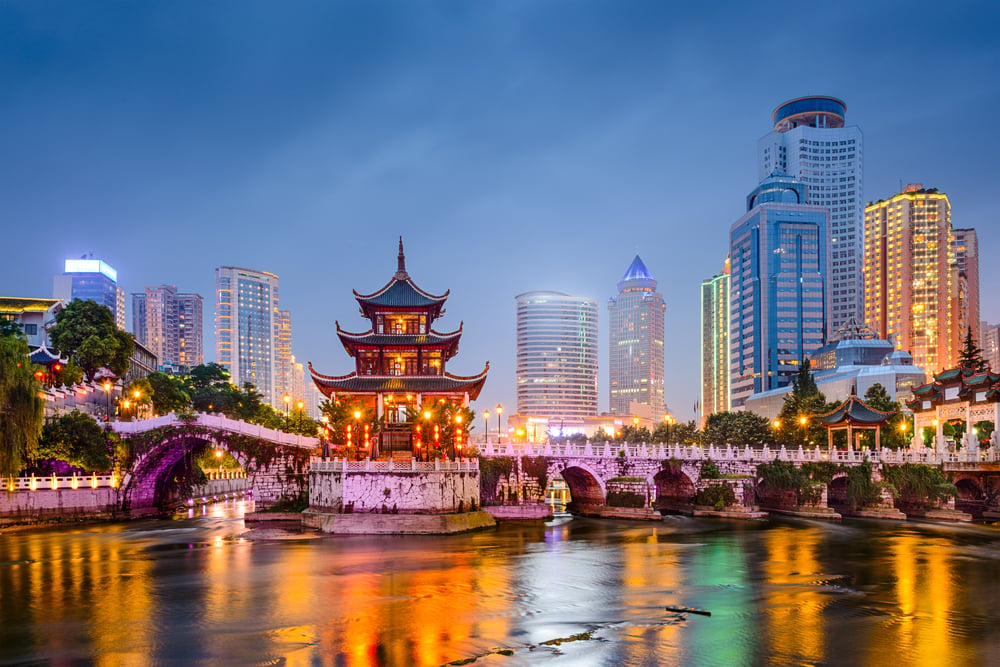
Hong Kong
Verdict: Restricted
Hemp cultivation is prohibited in Hong Kong. The penalty for growing any plant of the Cannabis genus can receive a maximum fine of HK $100,000 (~ USD $12,750) and 15 years in prison.
However, CBD is not a controlled substance. The Dangerous Drugs Ordinance classifies THC and any THC-containing cannabis plant as illegal. This means that CBD is legal as long as its THC content is equal to zero.
The government’s Centre for Food Safety confirmed that CBD is not a dangerous drug. In their statement, officials say that consumers should be cautious when importing or ordering CBD foods and drinks online because the products may contain THC.
To avoid any problems, look for companies that sell CBD isolate (0% THC) products.
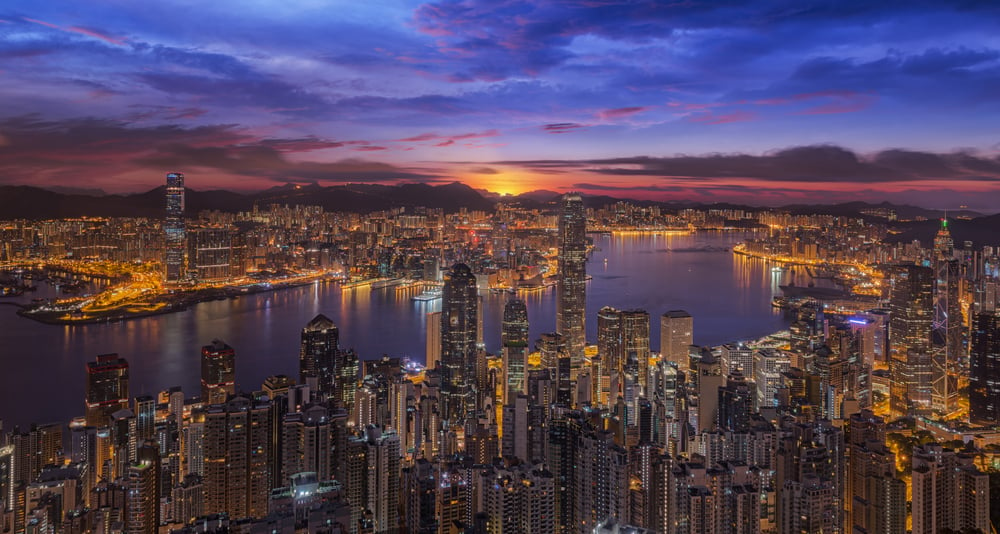
6. India
Verdict: Legal Grey Area (Legal Lean)
The Indian Federal government allows its states to set their own hemp cultivation rules.
India is currently working on new laws that would regulate hemp (<0.3% THC) as a crop. In July 2018, the state of Uttarakhand authorized the Indian Industrial Hemp Association (IIHA) to grow hemp. Uttar Pradesh is the second state that allows hemp research and cultivation.
Cannabis has been used since ancient times in India despite the fact that the modern government has yet to officially clarify the legality of CBD. The Ministry of Ayurveda, Yoga & Naturopathy, Unani, Siddha, Sowa Rigpa and Homoeopathy (AYUSH) supports the research on hemp varieties rich in CBD. According to officials from AYUSH, cannabis is one of the five crucial medicinal plants in the Vedas (religious texts).
In 2017, the government licensed the Council of Scientific and Industrial Research (CSIR) to grow cannabis for medical and scientific research. The CSIR is cooperating with Bombay Hemp Company (BOHECO). The Council is working on developing three cannabis-based medicines that will treat cancer, epilepsy, and sickle-cell anemia.
There is no formal ban or permit for CBD use in India — meaning it lives in a legal grey area. You should be cautious when buying CBD in India until the government offers more concrete laws.
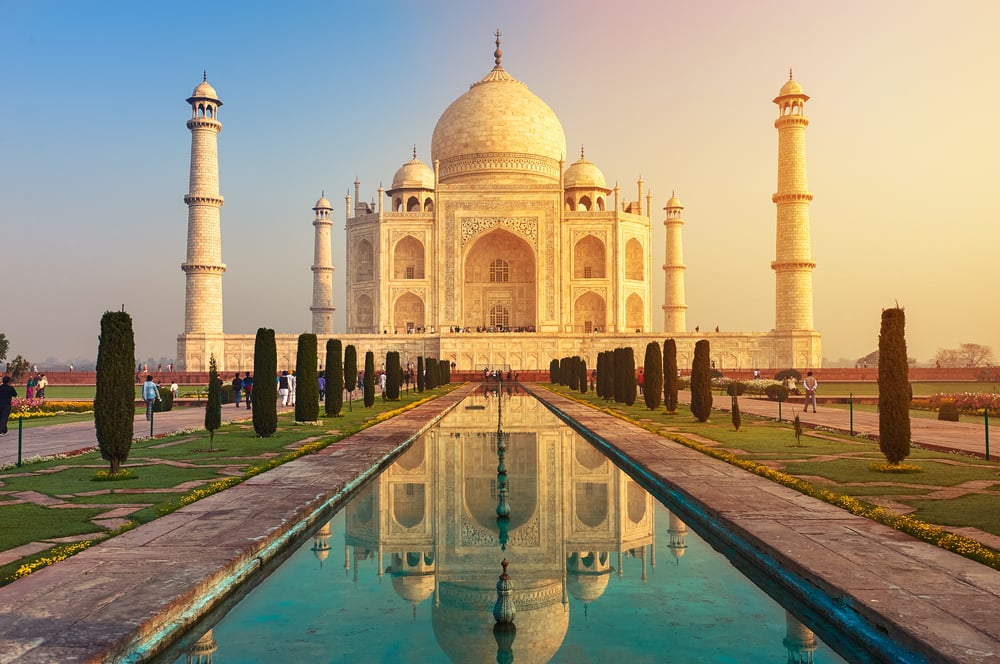
7. Indonesia
Verdict: Banned
Cannabis in Indonesia has been banned since 1927 and all of its derivatives are illegal. Refrain from buying any cannabis products in Indonesia — even those with low-THC concentration.
8. Iran
Verdict: Banned
Iran’s cannabis culture is deep-rooted in the country’s tradition, and the plant is widely used and grown. By law, its cultivation is prohibited, and its use, possession, and sale are punishable with hefty fines and even death penalties.
The government has discussed possible decriminalization, but there’s no specific bill that would regulate this. CBD is not differentiated from cannabis and is illegal for sale and use.
Although you’ll hear many stories about cannabis consumption, it’s best to refrain from buying any illegal hemp or marijuana products, else you could end up paying a hefty fine or even visiting one of Iran’s prisons.
9. Iraq
Verdict: Banned
Cannabis in Iraq is entirely outlawed, and the ban includes its derivatives.
10. Israel
Verdict: Legal for Medical Use
Israel is the world leader in CBD research and development but regulates the cannabinoid strictly. Until recently, the Ministry of Health was opposing the complete legalization of CBD — the cannabinoid was available only to patients who apply for a medical permit directly to the ministry.
In 2018, the health authority changed its stance, permitting public service physicians to issue licenses and monthly prescriptions for medical cannabis. Several government-licensed pharmacies now sell medical CBD.
NOTE: Doctors prescribe CBD isolates, which are THC-free — you can’t buy full-spectrum hemp oils in Israel at this time.
As of 2019, the Israeli government is working on a draft that would remove CBD from the Dangerous Drugs Ordinance. CBD is not explicitly classified in the list of dangerous drugs, but falls under the definition of “any extract or substance derived from the cannabis plant.” The new law would exclude medical cannabis products and dietary supplements containing up to 0.2% of THC from the definition of a drug.
Imported CBD lives in the restricted grey area. The Israeli police have said that CBD is not on the list of dangerous drugs — therefore, they refrain from any action against individuals who import CBD. The police have also noted that the possession of CBD isolate products is not illegal. On the other hand, customs have stated that they will act following the Health Ministry’s rule — the health authority considers CBD illegal (unless prescribed) and opposes its import.
Therefore, it’s not recommended that you import hemp products if you live in Israel at this time.

11. Japan
Verdict: Grey-Area (Legal Lean)
The Japanese Cannabis Control Law defines cannabis as the cannabis plant (Cannabis sativa L.) and its products. The definition excludes mature cannabis stems and their products (but not resin), and cannabis seeds and their products.
In Japan, CBD derived from hemp is legal, but it cannot contain any trace of THC.
In early 2019, the Ministry of Health authorized CBD (Epidiolex) for medical trials for epileptic patients.
When buying CBD in Japan, you should look for companies that sell pure CBD (CBD isolates). There are few companies allowed to export CBD to Japan.
Growing hemp in Japan is lawful under two types of licenses:
- License to cultivate low-THC hemp (< 1%) for fiber and seeds but does not include hemp cultivation for drug use
- License for scientific and medical research (this license is more difficult to obtain)
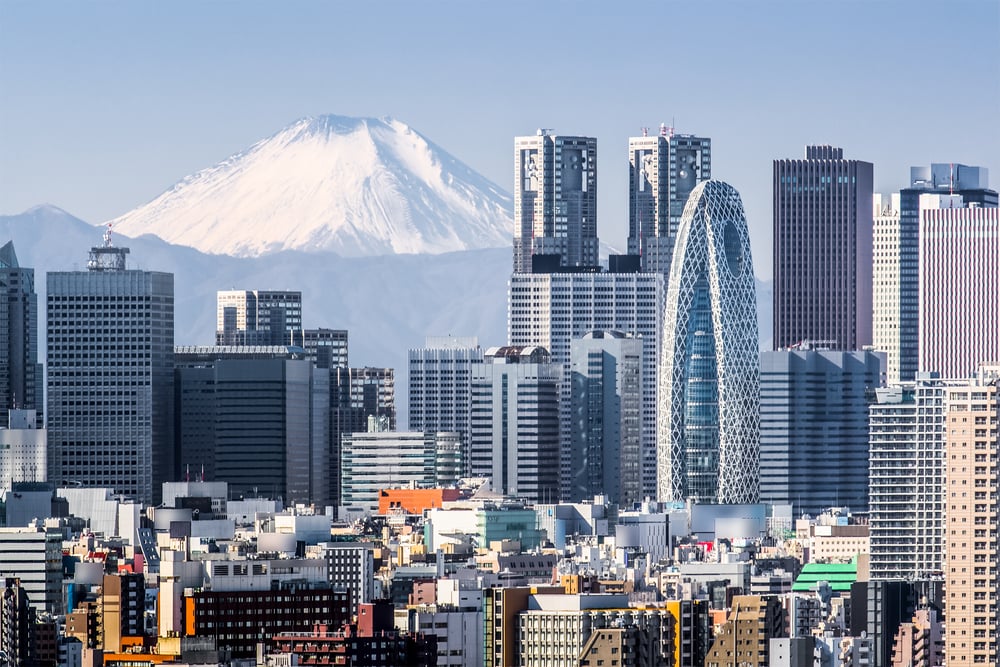
12. Kazakhstan
Verdict: Banned
The Kazakhstan government legalized hemp growing in 2016. The country is known for its vast fields of wild cannabis and highly potent hashish, though recreational use is strictly prohibited. The hemp grown under the government’s control is used for paper, and CBD is not allowed, despite some talks about its medical use.
Refrain from buying any cannabis-based products if you want to avoid serious legal trouble.
13. Kuwait
Verdict: Banned
Cannabis and its derivatives are strictly prohibited in Kuwait, and possession of any amount and type of cannabis product could lead to severe penalties.
14. Kyrgyzstan
Verdict: Illegal
Wild cannabis occupies a large area in Kyrgyzstan, especially around Lake Issyk-Kul. The country survived a political crisis in 2007, and tourism — the only stable source of income — has drastically decreased since. To survive and support their families, many locals harvest wild cannabis and sell it to dealers.
Industrial hemp is legal (only for fiber and seeds), but its cultivation has declined after the collapse of the Soviet Union. Although derived from hemp, CBD is not legal. Penalties on any illegal possession of cannabis can lead to severe penalties, so it’s best to refrain from purchasing CBD in Kyrgyzstan.
15. Laos
Verdict: Banned
Cannabis was entirely illegal in Laos until October 2019, when the government licensed an Australian company to grow hemp for medicinal purposes, but the plant will be mostly exported.
In the meantime, Laos is researching the therapeutic uses of cannabis and has suggested building a hospital for treating cancer with traditional cannabis-based medicines.
Possession and use of any cannabis and its derivatives remain illegal.
16. Lebanon
Verdict: Banned
Cannabis is illegal in Lebanon, but the government is discussing its legalization for medicinal purposes. If medical cannabis becomes legal, the country will likely legalize hemp.
For now, all cannabis and its derivatives are outlawed, despite its popularity and wide use among locals.
17. Malaysia
Verdict: Legal for Medical Use
From a country applying the death penalty for those caught in cannabis possession, to a country that recognizes CBD’s benefits — impressive! The Malaysian government permits hemp cultivation for research purposes but limits its use only to fiber and seeds.
Growing and processing hemp for medical or commercial purposes is prohibited. However, government-licensed retailers and companies are allowed to sell CBD after their products pass through a series of strict trials and fulfill the legal criteria.
Possession of cannabis and its processing are still severely penalized, but the government is discussing the abolition of capital punishment.
NOTE: Unless you’re sure your retailer is licensed to sell CBD, do not purchase any CBD products.
If you want to buy a cannabis-based medicine, you should apply to the pharmaceutical department. If a pharmacy considers the product safe and effective, they’ll allow you to use it.
18. Mongolia
Verdict: Banned
Mongolia’s government allows hemp cultivation for research purposes and CBD extraction, but there’s only one company licensed to do this.
For now, it seems that CBD remains illegal and that the company will only export the produced hemp-derived CBD.
19. Myanmar
Verdict: Banned
Myanmar’s law doesn’t differentiate hemp from marijuana and prohibits its use and cultivation.
The country has some of the harshest penalties when it comes to cannabis possession, and getting caught with a small amount could land you in jail for five years.
Myanmar has capital punishment for possession and trafficking of more massive amounts of cannabis.
20. Nepal
Verdict: Banned
Nepal hasn’t defined its hemp laws — technically, it’s illegal under the law, but some territories allow cultivation under a government-issued license.
While hemp lives somewhere in the legal grey area, CBD is not differentiated from cannabis and is not allowed for use.
21. North Korea
Verdict: Banned [presumably]
North Korea has a well-developed hemp industry, but it is supposed that CBD is not allowed.
The unclear status of cannabis and CBD is due to North Korea’s lack of transparency towards the outer world.
22. Pakistan
Verdict: Banned
Pakistan is known for its vast fields of cannabis — the plant grows wildly. Although prohibited by law, many locals consume marijuana and hashish publicly. However, CBD is considered an illegal substance and is prohibited for sale and use.
23. Philippines
Verdict: Legal for Medical Use
Cannabis and its derivatives are strictly prohibited in the Philippines.
There’s one exclusion — individuals suffering from a terminal illness can apply to the Foods and Drugs Authority for a special permit to use cannabis-based drugs (including CBD oil). Although this rule was introduced in 1992, the stigma around cannabis still exists, and only one application has been sent as of December 2018.
24. Qatar
Verdict: Banned
Qatar stands among the countries with the harshest cannabis laws. Any action related to cannabis — including hemp — is strictly prohibited.
25. Russia
Verdict: Grey-Area (Restricted Lean)
The Russian government allows hemp cultivation, but hemp can’t be grown for the production and manufacture of narcotic drugs and psychotropic substances.
CBD is not explicitly included on the list of narcotic drugs and psychotropic substances — however, THC is strictly forbidden. The prohibition falls on its isomers too, and CBD is considered a THC isomer.
Additionally, the Technical Regulation on Food Safety No. 21 (appendix 7) prohibits the use of all kinds of hemp and its parts (including derivatives) as dietary supplements.
While the Russian law doesn’t specifically classify CBD as a controlled substance, the cannabinoid falls in the restricted grey area (it is a hemp derivative and a THC isomer).
As of October 1019, there is one company — Kannaway — that is permitted to sell CBD products in Russia. We expect to see more government-approved CBD companies stepping onto the scene in Russia as the years go on.
At the moment, it’s not advised to order CBD products across borders if you live in Russia.
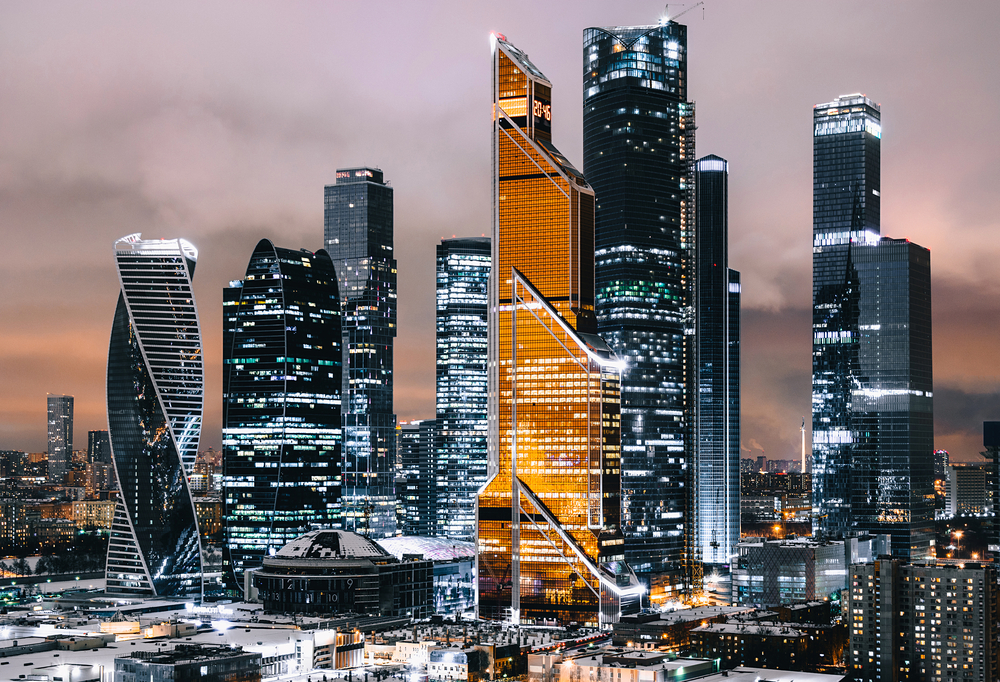
26. Saudi Arabia
Verdict: Banned
Saudi Arabia is the third country on a global level by most stringent laws on drug control and prohibition — including cannabis.
Refrain from purchasing any products related to cannabis, regardless of the THC content.
27. Singapore
Verdict: Banned
Singapore has highly strict laws on cannabis, and any illegal activities related to the plant are not tolerated. Crimes that include cannabis use, production, selling or distribution carry serious fines, imprisonment, and even death sentences.
At the beginning of 2019, Singapore’s Ministry of Home Affairs and the Ministry of Health shared a common view on cannabinoids and their potential health benefits for patients with severe seizures and epilepsy. On the other hand, they emphasized that cannabis and its products remain controlled under strict Singapore laws.
We suggest you refrain from importing any illegal product into Singapore — including hemp products.

28. South Korea
Verdict: Legal for Medical Use
Hemp is one of the oldest crops in South Korea, and its cultivation is legal as long as it’s used for fiber and seed (protein powder, hemp seed oil, and hemp seed nut). Cultivators who wish to grow hemp must obtain a license from the government.
CBD in South Korea is legal only for medical use and under the surveillance of the Ministry of Food and Drug Safety (MFDS).
The National Assembly amended the Narcotics Control Act in November 2018, allowing the import of CBD for medical purposes. Permits for medicinal CBD import can be obtained through the Korea Orphan Drug Center on a case-by-case basis.
If you’re a patient, you could import CBD in South Korea after obtaining a doctor’s prescription and permission from the Korea Orphan Drug Center. Otherwise, CBD is illegal. Any action related to cannabis or THC-containing products could lead to a jail sentence.

29. Sri Lanka
Verdict: Banned
Medical marijuana in Sri Lanka is allowed only through the Ayurvedic Drugs Corporation. However, hemp is illegal under the Sri Lankan law, and CBD derived from hemp is not allowed for use and sale.
30. Syria
Verdict: Banned
Cannabis in Syria is illegal, as well as CBD — regardless of the THC amount, you’re not allowed to purchase CBD products.
31. Taiwan
Verdict: Legal for Medical Use
In 2017, the government of Taiwan decided to legalize CBD for medical purposes. The CBD product mustn’t contain more than 0.0001% THC and is available only for patients who have Parkinson’s disease and epilepsy.
The application process is complicated and acquires many documents and information that sometimes is difficult to obtain.
If you have one of the two eligible medical conditions, you can apply for a permit to import CBD to the Ministry of Health and Welfare after you obtain the following documents and information:
- Your ID card (photocopy of the front and backside)
- Certificate of diagnosis issued by the medical institution/your doctor
- A test result of the CBD product (the THC content should be less than 10 ppm)
- Temporary manufacturing license for adult-use cannabis products
Many patients have said that they don’t know how to import CBD due to customs — they often seize imported products and are not synchronized with the health authority. Another issue is that most foreign brands don’t want to ship their products to Taiwan due to the strict rules and the chaotic law.
NOTE: If you want to purchase CBD for medical purposes, it’s best to contact an official regulatory body.
Refrain from importing CBD on your own to avoid legal troubles with the authorities.
32. Tajikistan
Verdict: Banned
Tajikistan strictly prohibits cannabis (including hemp) and its derivatives.
33. Thailand
Verdict: Legal for Medical Use
CBD in Thailand is legal for medical use but must be free from THC.
In other words, CBD isolate products are legal for purchase via a doctor’s prescription.
34. Timor-Leste
Verdict: Banned
Cannabis in Timor-Leste is prohibited, and CBD is not an authorized product regardless of the THC content.
35. Turkey
Verdict: Legal for Medical Use
If you want to buy CBD in Turkey, you’ll have to obtain a doctor’s prescription.
Refrain from purchasing CBD without a doctor’s recommendation. Penalties on cannabis possession or any product related to it are severe and you could end up serving a prison sentence.
36. Turkmenistan
Verdict: Banned
Cannabis and its derivatives are outlawed in Turkmenistan, meaning you’re not allowed to purchase and use CBD.
37. The United Arab Emirates
Verdict: Banned
The United Arab Emirates doesn’t tolerate anything related to cannabis, regardless of the THC content. There have been rumors that pure CBD (99%) is tolerated, but the authorities do not confirm this.
Under the law, cannabis is entirely illegal, and so are its derivatives.
If you get caught with the smallest amount of any prohibited substance present in your blood, this still counts as possession, and you could end up in jail.
Refrain from purchasing or using CBD products in the UAE.
38. Uzbekistan
Verdict: Banned
Cannabis and its derivatives are outlawed in Uzbekistan.
39. Viet Nam
Verdict: Banned
Vietnam has a long cannabis history, but the law prohibits its use and sale. The government has discussed the legalization of medical CBD, but nothing has changed yet.
We’ll update you if the government introduces friendlier regulations.
How to Buy CBD Products in Asia
CBD in Asia is controlled under strict laws. Aside from the legal matters, the CBD market in Asia is quite new, meaning the quality and safety of products could also be a problem. There are no regulatory agencies to control the space, and any CBD companies that are popping up in the region usually operate illegally.
Here are a few of the ways you may be able to get hemp products if you live in Asia:
1. Buying CBD In-Store in Asia
The stigma around CBD is still strong in Asia, and finding this green gold on shelves won’t always be easy.
The CBD market is booming in Japan and Hong Kong, and you may find CBD in pop-up stores and specialized CBD stores in these regions. Many other Asiatic countries haven’t regulated their CBD market, so you might need to wait a while yet until CBD is placed on the shelves. If you live in a country with restrictive laws, you won’t be able to buy CBD locally, unless you have a prescription.
Pros & Cons of Buying CBD In-Store in Asia
| Pros | Cons |
|---|---|
|
|
2. Buying CBD Online in Asia
Online shopping is what many of us prefer these days. It’s cheaper, comes straight to your door, and offers a vast selection of product options.
Online shopping saves you time and money and doesn’t limit you with working hours of a physical store. You can order your product from home whenever you want.
On the other hand, online shopping has its downsides. When you buy CBD online, you can’t have your product immediately. Some stores don’t ship CBD to your country either, so you might need to spend some extra time registering for a mail forwarding service in order to get the product to your door (we’ll explain how this works in more detail below).
When buying CBD online, know that CBD is not a common product on the Asian market. The regulations around the hemp-derived CBD are strict in Asia, and not every country authorizes its import.
If you live in a country where hemp and CBD are prohibited, don’t risk importing illegal products. Know your laws before you order.
Pros & Cons of Buying CBD Online in Asia
| Pros | Cons |
|---|---|
|
|
How To Avoid Poor-Quality CBD Products
Not sure what makes CBD a quality product? Here are a few rules of thumb to keep in mind.
- Read product reviews — it’ll help you appraise its quality
- Don’t shop from retailers who can’t provide you with a quality certificate
- Don’t buy CBD products that make obnoxious health claims about its products — CBD is not a cure-all
- Buy from established brands — there are a lot of fly-by-night companies selling CBD in Asia that should be avoided at all costs
Avoiding Illegal CBD Products
Understanding the legal status of CBD is crucial — Asian countries have harsh penalties on law violations.
Here are a few things that you should do to protect yourself:
- Check twice before you buy — local laws vary and change quickly, as the CBD market is still not fully regulated.
- Buy your CBD online — Online shops pay more attention to both local and international laws because they ship their products and must comply with the regulations of the country they’re shipping to.
NOTE: This does not mean that ALL online shops follow the rules. Conduct thorough research before you choose your CBD retailer.
How Mail Forwarding Works
Some companies may decide not to ship to your region even if it’s completely legal — so the only way to get the product to your door is through the help of a mail forwarding service.
Mail forwarding services redirect mail so you can purchase from brands that may not ship to your country or live in a country with strict importing regulations (do this with caution).
Once you register with a mail forwarding company, you’ll receive a local address that you can use to make online orders.
If ordering from a US company, you should use a mail forwarding service that gives you an American address (like Shipito). There are others around the world you can use as well.
Place your order and enter the mail forwarding address as your delivery address. Your package will arrive at the address you were provided with. The staff from the mail forwarding service will change the stamps with new ones and forward the package to your final (home) address.
If you want to buy CBD online in Asia, try Skypax. The company will provide you with a mail forwarding address in the UK, and forward your package to your address. Skypax also offers concierge service, meaning you can provide them with product information and they’ll place the order for you.
The Estimated Costs for Mail Forwarding Services
Skypax Mail Forwarding Rates
| Tier of Service | Sign up Fee | Annual Fee | Average Shipping Fee |
| Standard Membership (If you only need the service every once in a while) | £12 setup ($15 USD) |
None | £30 ($36 USD) |
| Premium membership (If you order CBD a lot and want protection on your packages) | £0 | £90 ($110 USD) |
£30 ($36 USD) |
CBD Companies Operating in Asia
There are currently no recommended CBD brands operating out of Asia — but you can use mail forwarding services to order CBD products from either the United States or Europe and have it shipped to your address in Asia.
The Future of CBD in Asia
Asia is becoming more open to CBD, as the market is of enormous economic importance for the region. Three of the top ten cannabis oil exporters in the world are from Asia (China, India, and South Korea).
Aside from economic matters, CBD has been largely used in Asian countries as medicine in the past, but CBD was banned for many years due to the global prohibition on cannabis.
Today, the cannabinoid and its therapeutic benefits are gaining popularity again, and Asia is eager to reintroduce cannabis on the market.
Currently, CBD cosmetics are products with the highest demand in Asia. CBD in food, beverages, and dietary supplements are somewhere in a legal grey area where CBD is somewhat legal, but with some room for interpretation.
Medicinal CBD is strictly controlled as well — but it’s also one of the reasons why countries are working on friendlier hemp regulations.
As having some of the world leaders in hemp cultivation, Asia gives hope that it’ll open its doors for CBD once regulators update or better-define the local laws.
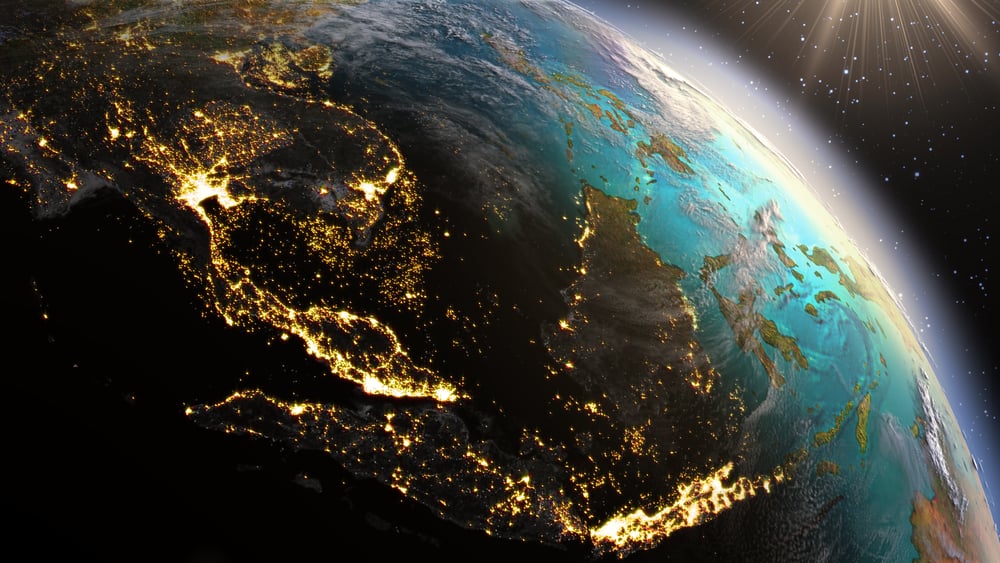
Final Thoughts: Buying CBD in Asia
If you’re living and Asia and wish to purchase CBD, proceed with caution.
Some countries strictly prohibit cannabis products — the harshest punishments include large fines and jail time.
You can purchase CBD in-store, or you can shop online. If you’re buying CBD in Japan or Hong Kong, always look for CBD isolate products that are guaranteed to be THC-free. Singapore doesn’t tolerate any cannabis products, so it’s better not to buy CBD if you live in this country.
Buying CBD in Asia
What Type of CBD Products Are You Looking For?
Signup to our newsletter
Be the first to know about our newest arrivals and special offers!
